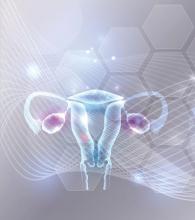PCOS: It's Often Temporary

What you see below isn’t so much of a blog post per se—it used to be one of our primary practice areas on this page. We’re still very knowledgeable about PCOS and can help women with this condition, but have found that most of our clients have PCOS in the context of our primary areas of practice (and also blood sugar dysregulation, which so many of our clients experience).
In an effort to distill things down to what we’ve become known for and what really fires us up, we’ve chosen to put this information on our blog vs. it being a “primary” practice.
* * *
Polycystic ovary syndrome (PCOS) is a largely underdiagnosed condition that affects up to 10 percent of women of childbearing age. The condition is characterized by irregular ovulation and, in many cases, infertility.
There are other signs and symptoms that can occur with PCOS, including insulin resistance and high circulating androgens (“male” hormones like DHEA and testosterone (androgens are also a huge consideration in hair loss/alopecia)), but vary from person to person. Often, the pituitary gland and ovaries aren’t communicating, which leads to irregular ovulation and irregular build-up and shedding of the uterine lining.
In recent years, the functional medicine community has begun to understand PCOS as more than one set of symptoms. As naturopathic doctor, Lara Briden, writes, “PCOS is one of several whole-body hormonal conditions (all called PCOS) that affect the ovaries. Hormones are the problem. Ovaries are the victim.”
Historically, PCOS was diagnosed by looking for “the pearl necklace” with an ovarian ultrasound, but experts now agree that an ultrasound can’t give a definitive diagnosis. Ovaries are polycystic by nature; they grow egg-containing cysts every month and then reabsorb them. With an ultrasound, a normal ovary should have up to 12 cysts. Women are often given a diagnosis of PCOS if they have more than 12 cysts on an ultrasound if those cysts are smaller than average.
But the cysts are small because ovulation didn’t occur that month. That doesn’t tell the larger story of why ovulation didn’t occur (or if it occurred last month or will occur again next month).
And that’s the key question—why didn’t ovulation occur? When you know the answer, you can use lifestyle medicine to address the root cause and manage symptoms.
What we do know is that the hormonal imbalances underlying PCOS are systemic. So it’s impossible to “treat” PCOS with diabetes drugs (like Metformin or Glucophage)—or the birth control pill. Neither gets to the root of the condition. The birth control pill stops you from ovulating—with PCOS, you’re already not ovulating. If you’re looking to get pregnant, the pill isn’t a helpful strategy to begin with.
Women may experience some, all, or just one or two common symptoms, which can morph over time:
- Infertility (PCOS is said to be the leading cause of infertility)
- High cortisol
- Irregular or absent cycles
- Acne
- Weight loss resistance
- Systemic inflammation
- Hair loss (on the head)
- Excess hair growth (in rogue places, like the belly, arms, thighs, breasts, chin, or upper lip)
Long-term effects can include anxiety, depression, moodiness, anger, low libido, heart disease, abnormal liver enzymes, and an increased risk of breast and endometrial cancer.
Go here for our Managing PCOS guide >
PCOS is one of the primary causes of infertility because it disrupts regular ovulation. Given that the condition so often falls under the diagnostic radar, it’s important to rule out PCOS if you’re having difficulty getting pregnant. For many women, some straightforward dietary and lifestyle changes can be all that’s needed to conceive. A PCOS diagnosis doesn’t mean that a healthy pregnancy is out of the question.
Fortunately, PCOS is often temporary. The condition responds very well to natural dietary and lifestyle strategies, especially strategies for insulin resistance. If a woman with PCOS takes the commonly prescribed meds for PCOS but doesn’t make changes to her diet and lifestyle, her ovaries may become polycystic again when she stops taking either drug.
If you suspect you have PCOS, ask your doctor for a complete evaluation, including checking for insulin resistance. This includes a physical examination, a fasting lipid profile, a glucose test, hormone levels, and an insulin test (before and two hours after a high-carbohydrate meal). Although we recommend this comprehensive testing for proper diagnosis, you can also monitor your own blood sugar at home with a glucometer.
Add comment